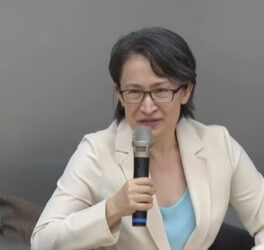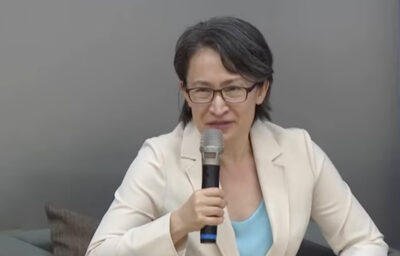
The Department of Justice (DOJ) announced on November 19 that the Massachusetts Department of Children and Families (DCF) would change its policies to make sure it complies with federal protections for persons with disabilities.
The agreement resolves findings by the Justice Department and HHS that DCF discriminated against parents with disabilities in the administration of its child welfare program in violation of the Americans with Disabilities Act (ADA) and Section 504 of the Rehabilitation Act. This is the first Department of Justice settlement to address disability discrimination by a state child welfare agency.
“The stakes are never higher than when a parent faces the possibility of losing a child,” said Assistant Attorney General Eric Dreiband of the Civil Rights Division. “Individuals with disabilities have just as much a right to raise their children as any other person in this free country, and no government should unnecessarily infringe upon that sacred right. While child welfare agencies face challenging and weighty decisions on a daily basis, they must always strive to ensure that no child is removed from a parent based on unsupported stereotypes, discriminatory attitudes, or other unlawful reasons. This agreement will ensure that parents with disabilities are treated as individuals. They receive the support and services they need to have an equal opportunity to retain or regain custody of their children.
“Parents with disabilities should never lose custody of their children due to discriminatory assumptions about their abilities. The love of a parent, coupled with proper support services, can overcome a multiplicity of challenges,” said Roger Severino, Director of the HHS Office for Civil Rights. “We are pleased to have reached this great result with the Department of Justice and Massachusetts.”
In 2015, the Department of Justice and HHS jointly found that DCF discriminated against a mother with a developmental disability and sought to terminate her parental rights to her infant daughter based on assumptions about her disability. Over the past five years, the Department of Justice and HHS received similar complaints against DCF from parents with physical, hearing, developmental, and other disabilities. The departments also received numerous complaints alleging that DCF denied requests for reasonable modifications, failed to provide interpreters to individuals with hearing impairments, and otherwise denied parents with disabilities an equal opportunity to benefit from DCF’s programs and services. The Justice Department investigated and substantiated many of these allegations, as well as allegations that DCF’s methods of administering its programs and services have the effect of discriminating against parents with disabilities.
Under today’s agreement, DCF will take critical steps to ensure the ADA’s protections extend to parents with disabilities throughout the Commonwealth of Massachusetts. DCF will not base decisions about removal of a child on stereotypes or generalizations about persons with disabilities. Rather, DCF will base such decisions on an individualized assessment of the parent with a disability and objective facts.
The ADA requires that child welfare agencies provide parents with disabilities an equal opportunity to access and benefit from their services. Such agencies must reasonably modify policies and practices when necessary to avoid disability discrimination. They must ensure that communication with parents with disabilities is effective. And they must not use criteria or other administrative methods that result in disability discrimination.








